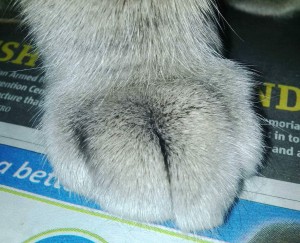After consultation with members, a member survey, input from the public, and in keeping with the direction provided by the membership, the Nova Scotia Veterinary Medical Association provides the following information.
At its December 12, 2017 meeting, The Council of the Nova Scotia Veterinary Medical Association agreed to the following change in its Code of Ethics –
Section 46. A three-month education period will take effect immediately and this change in the Code of Ethics will come into effect on March 15, 2018.
No Member of the Nova Scotia Veterinary Medical Association shall perform the elective and non-therapeutic Partial Digital Amputation (PDA), commonly known as declawing or onychectomy, of domestic cats. The NSVMA views elective and non-therapeutic PDA as ethically unacceptable. However, the NSVMA does recognize that appropriate medical therapy may necessitate PDA surgery, that includes but is not limited to, biopsy of a nail or phalanx or surgery to treat the following:
a. neoplasia of nail bed or phalanges,
b. severe or irreversible trauma,
c. immune-mediated disease affecting nail bed,
d. paronychia (inflammation or infection),
e. onychodystrophy (abnormal formation),
f. onychogryphosis (hypertrophy and abnormal curvature),
g. Definitions: onychomadesis (sloughing), onychomalacia (softening), onychomycosis (fungal infection), or onychoschizia (splitting).
The revised wording of Section 46 will take effect on March 15, 2018. As part of this change, the wording related to de-clawing in Section 45 is to be deleted since de-clawing of cats is referenced separately in Section 46.
.
Source: Media Release


